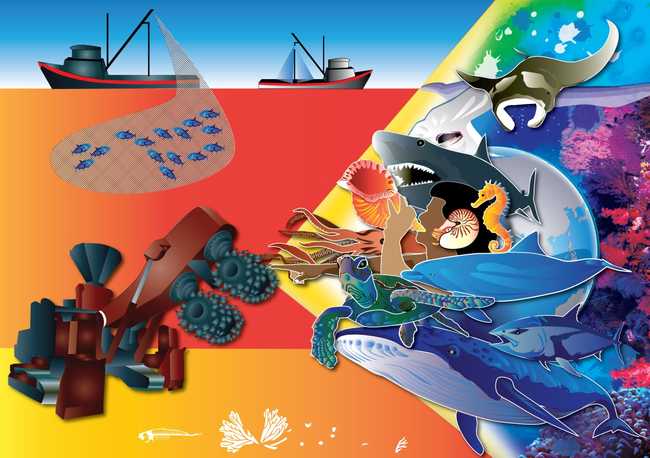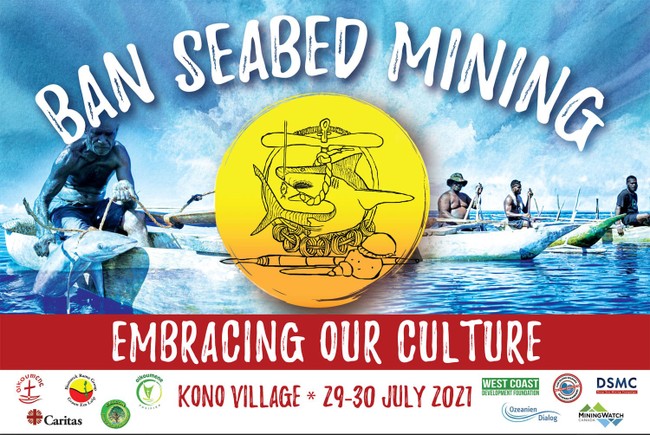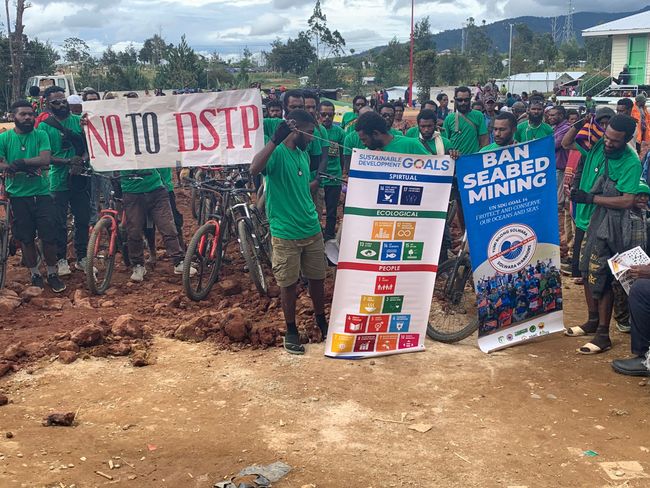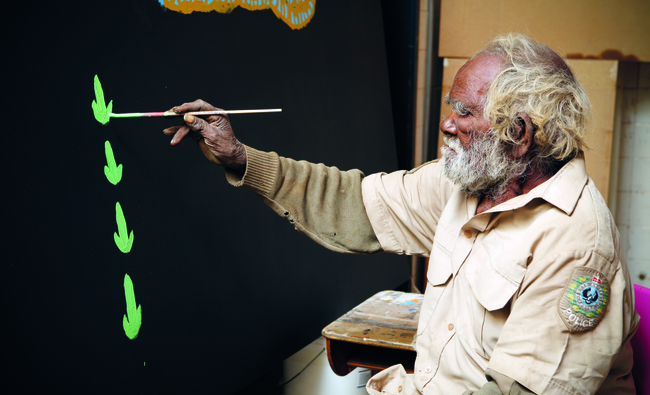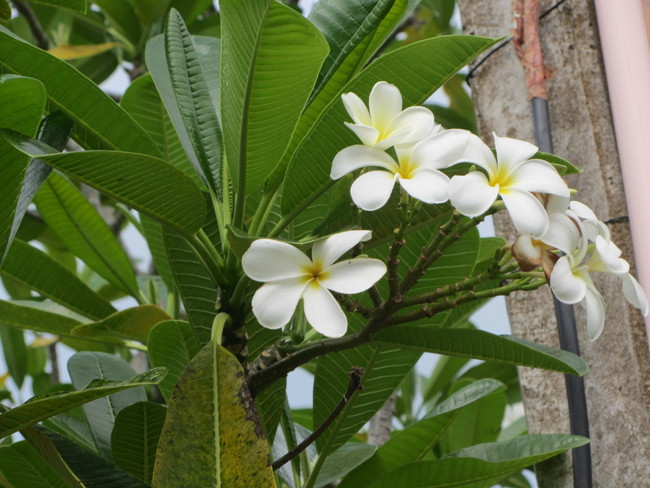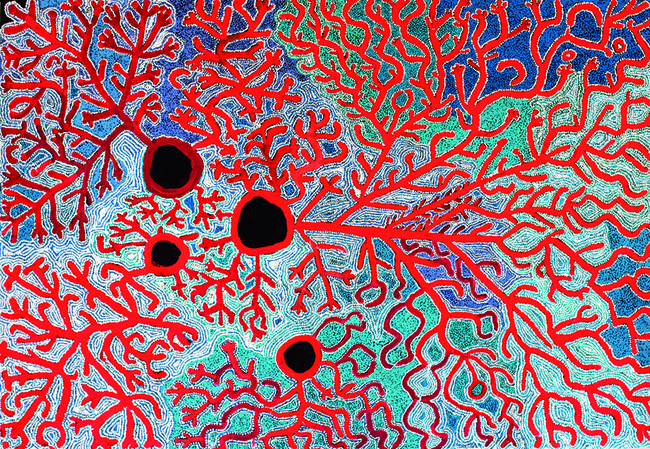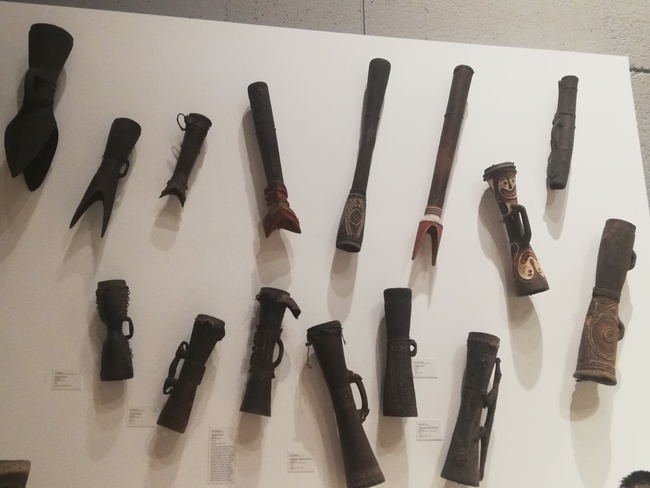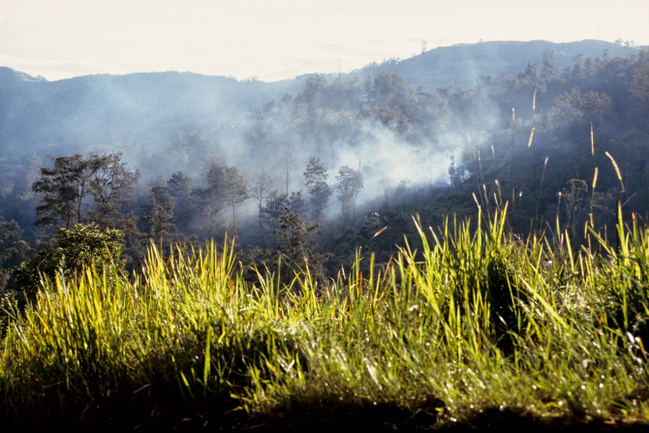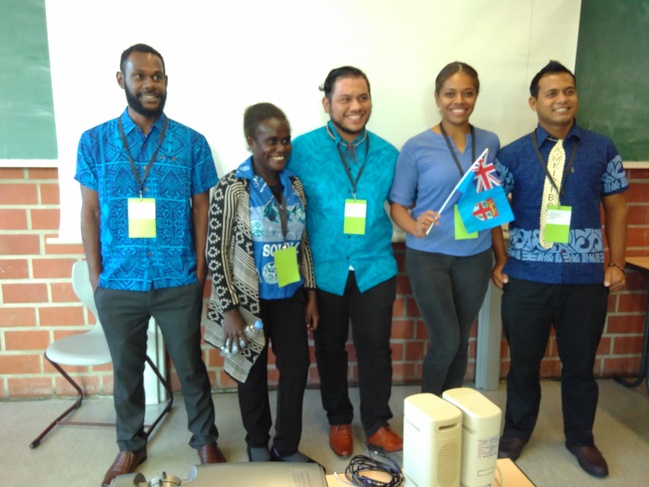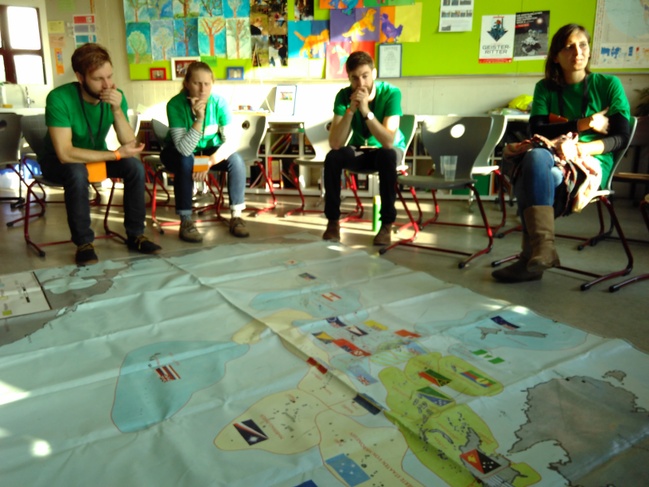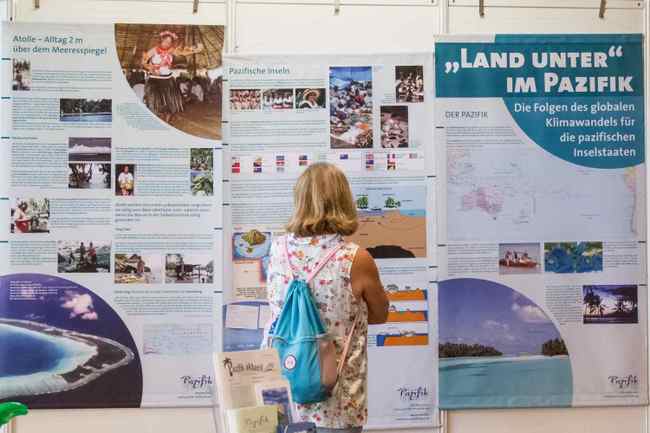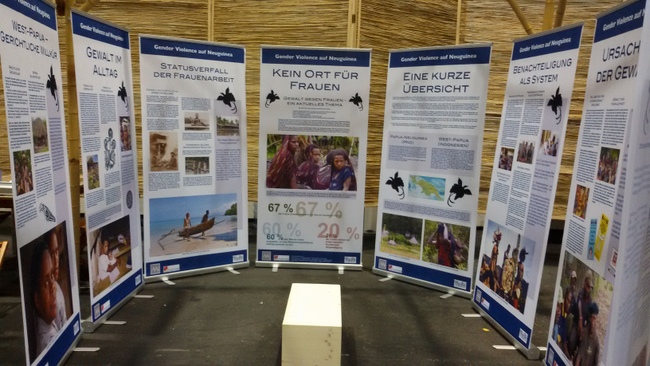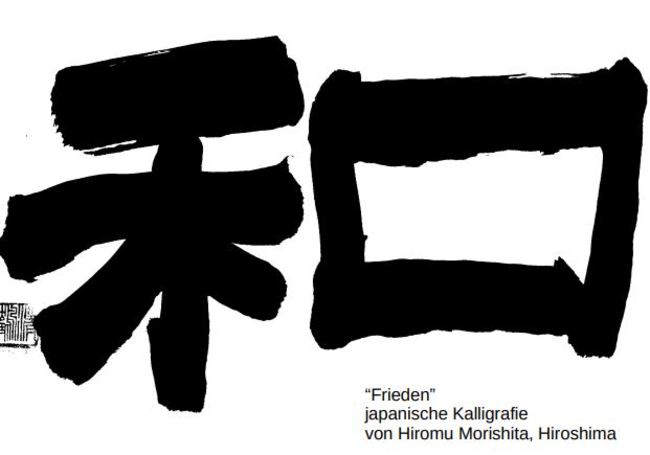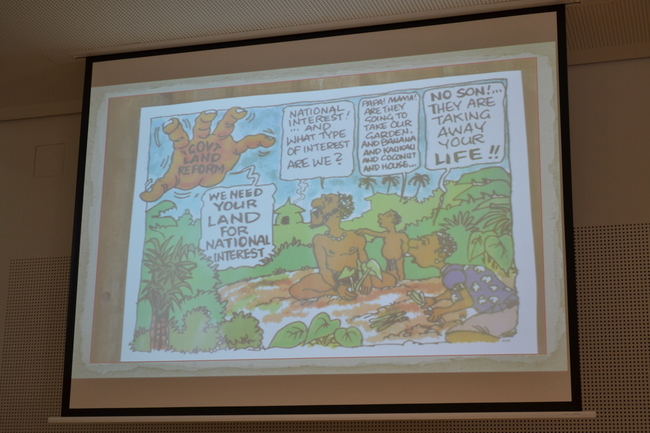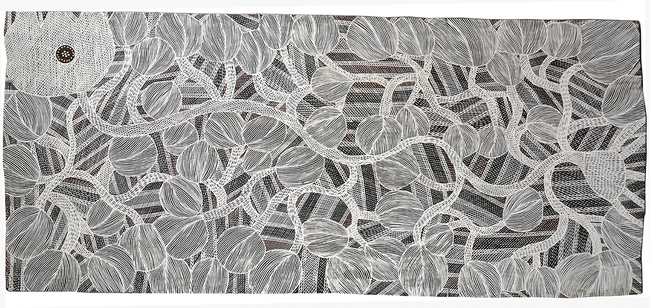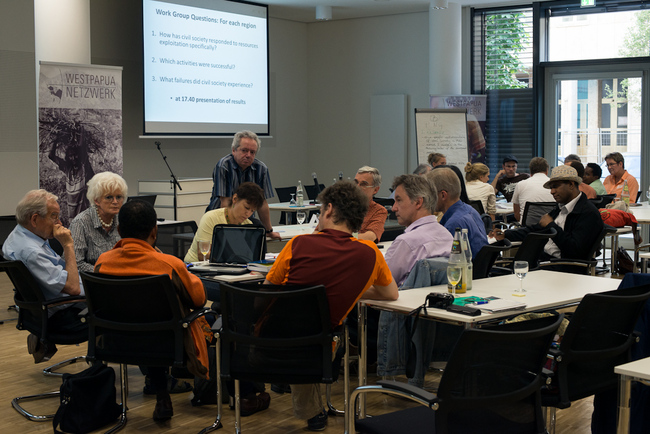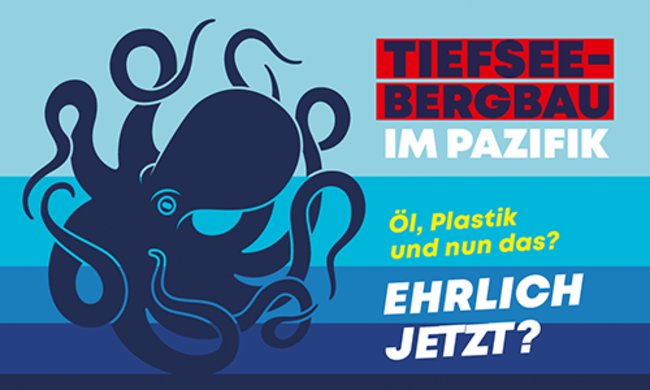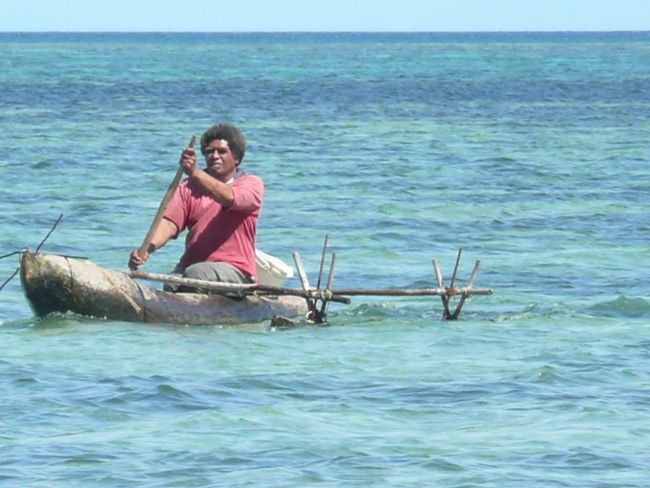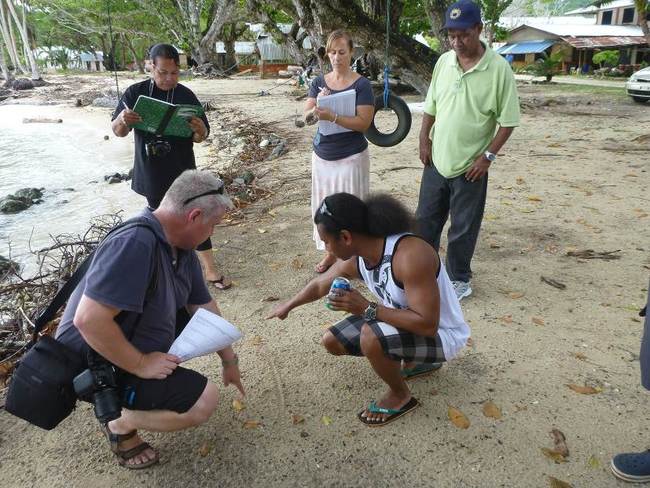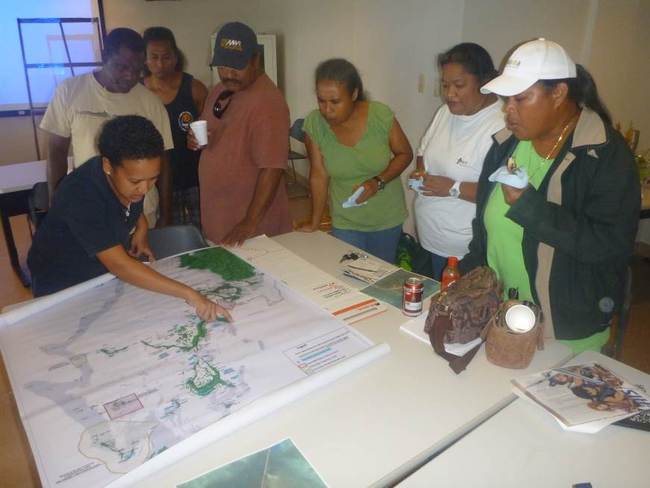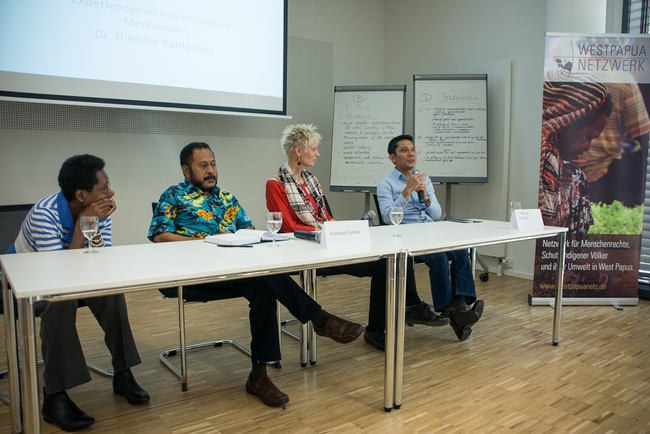Beyond the Reef of Piula
27.09.2011: Aufruf der Pazifischen Kirchenkonferenz an die Weltgemeinschaft
Beyond the Reef of Piula
As the Pacific Conference of Churches celebrates its 50th Anniversary, the Pacific Church Leaders met at Piula Theological College from the 26th – 29th of August 2011 to discuss pertinent issues affecting the Pacific.
This document is entitled ‘Beyond the Reef of Piula’ is a call to the churches to leave their space of security and comfort and dare to take risks in ecumenical relations, particularly issues on solidarity, peace and justice.
We the Church Leaders of the PCC: the Methodist Church in Samoa, Congregational Christian Church of Samoa, Anglican Church of Melanesia, Congregational Christian Church of American Samoa, Catholic Bishops Conference of Papua New Guinea, Cook Islands Christian Church, Diocese of Polynesia, Ekalesia Kerisiano Niue, Ekalesia Kelisiano Tuvalu, Evangelical Church of New Caledonia and Loyalty Islands, First Samoan Full Gospel Pentecostal Church, Maohi Protestant Church, Nukuno Protestant Church Association, Pacific Island Synod of the Presbyterian Church of Aotearoa / New Zealand, Presbyterian Church of Vanuatu, Samoa Council of Churches, United Church of Christ Pohnpei and United Church of Papua New Guinea, issue the following statement:
Acknowledgement
We gratefully and humbly thank the Methodist Church in Samoa, the President, Rev. Tupu Folasa II and the General Secretary, Rev. Vaiao Elisaia Eteuati for hosting the 5th Pacific Church Leaders Meeting for 2011 in Piula Theological College.
We congratulate Piula Theological College, the Principal, Rev. Dr. Etuati Tuioti, the faculty and students of the college for the warm welcome and the hospitality accorded to us the Church Leaders throughout the four days. We commend the service of the Principal, staff, students, families and hosting communities, which is a selfless expression of God’s teaching of service to one another.
We thank His Excellency President Oscar Temaru for sharing with us the struggles and continued oppression of the Maohi Nui1 people at the hands of the French Government and the General Secretary of the World Council of Churches Rev. Dr. Olav Tveit, for reminding us of our global ecumenical platforms and partnerships.
We also extend our gratitude to the Secretariat of the Pacific Conference of Churches for the organisation of the meeting.
Affirmations
1. We reaffirm our unity as member churches of the Pacific Conference of Churches in the one faith and one body of Christ.
2. While acknowledging our diversity, we reaffirm God’s call for churches in the Pacific to move to greater solidarity on issues of justice and peace.
3. We reaffirm the prophetic voice and witness of the church to speak out against injustice and to speak truth to power and to be the example that we profess.
4. We reaffirm God’s gift of freedom and wholeness of life in the Pacific, in particular political and religious freedom.
5. We reaffirm the ecumenical achievements of the past 50 years and are challenged to continue closer collaboration on social justice issues.
6. We reaffirm our ecumenical journey and that its future is God’s mission and will be guided by Him.
Statements of Concerns
The Biblical reflection of Micah 6:8 on justice, mercy and walking with God guides the following:
1. Land
We hold that the land is God’s gift to us, and it gives us our sense of identity and provides us with sustenance. We acknowledge, however, that we have abused God’s gift through the policies that we make and the actions that we take. We therefore call on governments and all land owners to review their land policies and practices to ensure that everyone benefits equitably from the land and its resources. We call on the churches to speak out against land-use injustices.
2. Self Determination
We have listened to the cry of the people of Maohi Nui, of their desire for freedom. We have discerned as Church Leaders and we hear the cry of God within the plea of the people of Maohi Nui. We have heard the appeal by the President of Maohi Nui, His Excellency Oscar Temaru, for the support of churches for the re-inscription of Maohi Nui in the United Nations Decolonisation Committee of 24 list. In this regard, we make the following pledges:
- We endorse the request of His Excellency Temaru to assist his lobby for the re-inscription of Maohi Nui in the United Nations Decolonisation List. Further, we pledge our support, individually as churches and as members of PCC, to do all that is within our means to help Maohi Nui attain political freedom.
- We welcome the World Council of Churches commitment to advocate for Maohi Nui’s re-inscription in the Decolonisation List of the United Nations.
- Beginning in 2012, we will celebrate a day of freedom in support of our brothers and sisters in Maohi Nui, Bougainville, New Caledonia, West Papua and peoples who yearn to be free. We call on the Secretariat of the PCC to designate such a day.
3. Church and State
We have learnt about the ambiguity of church and state relations in our various Island states. We have also learnt about the experiences where the engagement between church and state has perpetuated injustice. We are mindful of the different contexts within which church-state relations exist. In these experiences and learnings, we state the independence of the church to speak truth in freedom and without fear.
Furthermore, while the church and the state have different functions within society, they have a common, people-centered goal. In this regard, we call on the governments to consult the churches on issues affecting the people and the church to be active in its prophetic task.
4. Youth empowerment and engagement in the church
We acknowledge that upon the young people of the Pacific rests the hopes of ecumenism now and into the future. We therefore call upon all PCC member churches to invest in the further development of their youth programmes, especially in the formation of the following: i) participatory decision making; ii) ecumenical relationships; and iii) servant leadership. We acknowledge that the youth has a meaningful role to play in the mission of the church, therefore we commit ourselves to investing more in our youth programmes.
5. Mining and Logging
We have shared stories about the challenges each of our churches face; one of these is the negative impact of mining that affects some of our church communities especially among our member churches in Papua New Guinea, Solomon Islands, Fiji and New Caledonia. We believe that we are tasked with the responsibility to exercise good stewardship of our God-given resources. We call upon all member churches of PCC to stand in solidarity with our brothers and sisters in Papua New Guinea, Solomon Islands, Fiji and New Caledonia against the impacts mining has on the communities. We also call upon the governments of Papua New Guinea, Solomon Islands, Fiji and New Caledonia to exercise good stewardship of their resources and call for equal participation by the landowners and sharing of the wealth evenly.
6. Ecumenical Sharing
We deeply appreciate the membership of the Catholic church in our ecumenical family in the Pacific. We recognise the challenges of ecumenical dialogue especially with the Pentecostal movement across the region. In this regard we call for active steps to be taken to initiate ecumenical sharing and meaningful dialogue with the Pentecostal movement in the Pacific. Our ecumenical sharing has been fruitful and enriching for us all. Our experiences as Church Leaders, our achievements and failures have brought us to understand that we have a common responsibility and that is we are to learn from one another and to lead responsibly. We call upon the Secretariat of PCC to build into future Church Leaders’ meetings a meaningful space for sharing of common ecumenical learning.
7. Nuclear compensation
We recognise the injustice suffered by the people of Maohi Nui, victims of nuclear testing. We therefore commit to support their claim to compensation through prayers, petitions and awareness raising. We call upon the Secretariat to immediately organise a tour of dialogue among the member churches to highlight the nuclear plight of the Maohi Nui people.
8. Climate change
We recognise the dire impacts of climate change poses on our communities in the Pacific, in particular our atoll nations and low-lying coastal communities. We continue to affirm the Pacific Church Leaders’ calls made in the Moana Declaration in 2009 and ‘The Cry to Sing the Lord’s Song’ in 2010. In this respect, we urge the member churches of PCC to continue with the implementation of the resolutions.
9. Economic justice
We have reflected and shared experiences on the salient points in Micah 6:8 and its call for an economic system that is equitable, just and most importantly has the poor as its central motivation. We recognise that an unjust economic system perpetuates, breaks or fractures relationship between human communities and with the environment.
Conclusion
The Church Leaders present here at Piula agree that this is our Kairos Moment (God’s time). Inspired by the covenant formula in Micah 6:8, we stand to renew the call to act justly, love mercifully and walk humbly with God. In a holistic perspective, walking with God is manifested in loving and doing justice to all people including those who are poor, oppressed, marginalised, and neglected. It calls on churches not only to grasp through faith the knowledge of God’s ways within our human ways, but also to actively engage in promoting and living out of those ways in all their relational forms. Through the power of the Holy Spirit, we believe that true worship is about true commitment for the good of others.
THIS IS OUR CALL TODAY and our ecumenical commitment to action. Piula Theological College, Samoa, August, 2011
